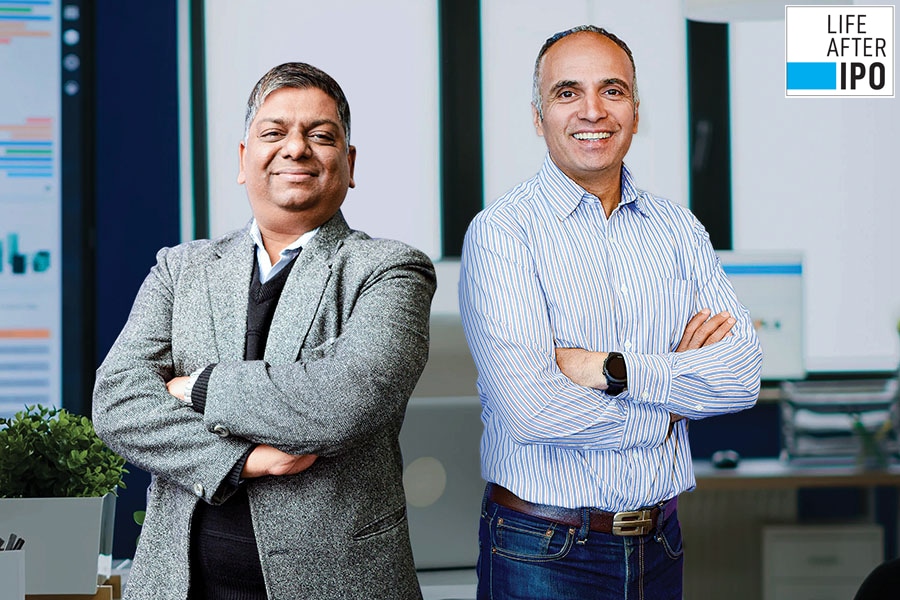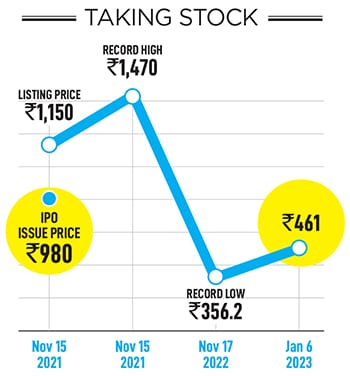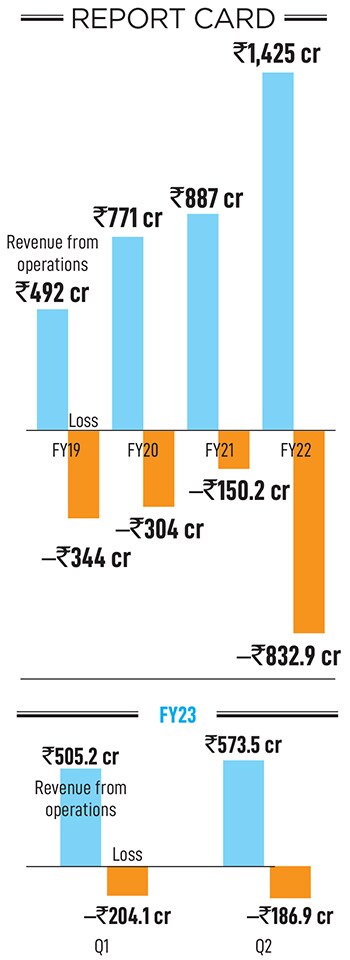
Focus on growing your company and not the share price: PolicyBazaar's Yashish Dahiya
While many entrepreneurs have lost sleep once the market stripped the bountiful IPO gains, Yashish Dahiya is the picture of calm. He didn't find much reason to celebrate when his company listed at a premium, and he's not much worried about the rout—what he wants to understand is the logic behind both
 Alok Bansal (left), co-founder and executive vice chairman, PB Fintech
Image: Amit Verma
Alok Bansal (left), co-founder and executive vice chairman, PB Fintech
Image: Amit Verma
Gurugram, January 2023. Yashish Dahiya is not an entrepreneur, he is an emotion. Sample this. “I was not very excited on the day of listing,” confesses the CEO and co-founder of Policybazaar. PB Fintech, which has Policybazaar and Paisabazaar as India’s largest online platform for insurance and lending products, respectively, got listed on November 15, 2021. Any founder whose company gets listed at a 17 percent premium—listing price of ₹1,150 versus an issue price of ₹980—should have all the reasons to be excited, elated and celebrate.
Dahiya, though, was doing none. He was pensive. This is why. “I could see all the expenses happening,” he recalls. The cost of an IPO, underlines Dahiya who co-founded the company in 2008, is quite high. “It is almost 3 to 4 percent of the funds that you’re going to raise,” he says. “I was a bit worried about a lot of expenses.”
What also makes Dahiya unique is his bluntness. “I am candid, but at times, candid can be foolish,” he smiles, adding that he is a man who usually goes by consensus. “Sab ne kaha tha IPO karna zaroori hai, tu hum kar rahe they (everybody said doing an IPO was essential, that’s why we were doing it),” he says. Since 2008, every funding contract signed by Dahiya had a clause mentioning IPO. “In a way, it was good that the IPO was happening, finally,” he says.




 A company and a CEO, Dahiya explains, must focus on the primary job of growing the company rather than looking at share price. “I don’t think you can try to run a company to solve the share price problem,” he says, adding that the stock has to follow the company and not the other way round. “Ek saal mein ye to samajh main aa gaya hai ki markets in the short term cannot judge companies (In one year, I have realised that markets can’t judge companies in the short run),” he reckons. On January 6, the stock was trading at ₹461.
A company and a CEO, Dahiya explains, must focus on the primary job of growing the company rather than looking at share price. “I don’t think you can try to run a company to solve the share price problem,” he says, adding that the stock has to follow the company and not the other way round. “Ek saal mein ye to samajh main aa gaya hai ki markets in the short term cannot judge companies (In one year, I have realised that markets can’t judge companies in the short run),” he reckons. On January 6, the stock was trading at ₹461.  So how are Indian investors different from their counterparts in the US? He explains. “In India, there’s a lot more focus on current metrics,” says Dahiya. The US investors, in contrast, want to understand a lot more about the potential of the company. Irrespective of nationality, he underscores, everybody has to see a profit. Somebody is happy to see it five years from now, others might want an early picture and some might wait for long. Pointing out his recent guidance on posting ₹1,000 crore PAT by 2026-27, Dahiya reckons that the number is well appreciated in India. Though in the US, the investors don’t care. “They want to see how the business will evolve over 10 years,” he says.
So how are Indian investors different from their counterparts in the US? He explains. “In India, there’s a lot more focus on current metrics,” says Dahiya. The US investors, in contrast, want to understand a lot more about the potential of the company. Irrespective of nationality, he underscores, everybody has to see a profit. Somebody is happy to see it five years from now, others might want an early picture and some might wait for long. Pointing out his recent guidance on posting ₹1,000 crore PAT by 2026-27, Dahiya reckons that the number is well appreciated in India. Though in the US, the investors don’t care. “They want to see how the business will evolve over 10 years,” he says.



